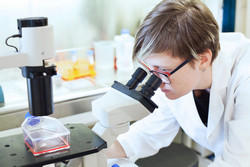Mechanistic insight into autophagy
Autophagy is a cellular degradation process that is fundamental to homeostasis. During autophagy, membrane vesicles, called autophagosomes, sequester portions of the cytosol (protein aggregates, organelles or pathogens) and guide them to lysosomes for degradation. Deregulation of the process is associated with various pathologies. Recent evidence indicates that autophagy-related (Atg) proteins are key regulators of autophagosome formation, lysosomal fusion and cargo recruitment. In particular, the Atg8 protein is itself regulated by post-translational modifications. Scientists on the project AS_ETHZ_IEF_2012 (The role of Atg8 posttranslational modifications in autophagy) set out to study the functional implications of these modifications. For this purpose, researchers developed an in vitro system of producing differentially phosphorylated Atg8 variants. Results indicate that Atg1-mediated phosphorylation is necessary for autophagy to proceed. Through the identification of novel Atg1 targets scientists proceeded to perform structural studies by electron microscopy. Overall, the study provided novel insight into the currently unknown signalling transduction pathways involved in the onset and progression of autophagy. It also served as the starting point for structural studies of the major multisubunit complexes involved in autophagy. Understanding the mechanism and regulation of autophagy will help provide solutions for many autophagy-related conditions.







